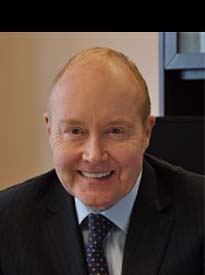
The Canadian Securities Administrators’ proposed client-focused reforms that introduce higher requirements for market conduct — notably suitability, “know your client” (KYC), “know your product” (KYP) and conflicts of interest — will be costly for all investment dealers to implement and administer. Indeed, the investment industry will face higher fixed and ongoing costs even if it’s successful in convincing regulators to make changes to proposed rules and guidelines. These higher compliance costs, combined with continued competitive pressure on fees and charges, will narrow operating margins and put pressure on earnings.
Ebullient wealth markets have kept many firms, both large and small, profitable in recent years; in fact, these strong markets have even kept some small firms afloat. However, the ratcheting up of regulatory costs combined with unrelenting competition will gnaw away at performance and begin to bite hard, particularly at independent firms. Firms will respond to the cost increases from the client-focused reforms as they typically have: by cutting costs, finding operating efficiencies and savings. and building business scale through mergers and acquisitions.
However, the costs and increased compliance risks of the broadly-based client-focused reforms will encourage many independent firms to restructure and retool their wealth-management operations to mitigate the negative impact of the reforms. In effect, many dealers will move from the full-service model toward a narrower, more focused package of wealth-management products and services to achieve cost efficiencies through specialization as well as lower compliance costs and risks.
The obvious move is to restrict a business to focus on clients with smaller investible asset levels of, say, less than $500,000. These smaller portfolios would still require KYC and suitability requirements to set investment objectives, risk tolerances and recommend investments, but would have less onerous obligations than larger portfolios given their correspondingly narrower KYC, suitability and conflict requirements. Furthermore, the product shelf would be more limited than that needed for more sophisticated investors.
Dealer firms could even move the investible asset threshold well below $250,000 by offering small investors the option of accessing robo-advisor/hybrid self-directed accounts or online robo-advisor platforms to serve these clients on cost-effective terms. This approach would enable an even narrower product shelf and reduced KYC, suitability and conflict of interest requirements for these investors.
These hybrid technology platforms also could provide dealers with a competitive edge by attracting clients who don’t deal with Investment Industry Regulatory Organization of Canada-licensed advisors because of the range of advice and products investment dealers offer.
A more streamlined client-focused approach also could open up greater possibilities for mergers and acquisitions. Firms with similar approaches to streamlining the customer base will see the advantages of synergies and business scale to justify combining operations.
Concerns about conflicts of interest may encourage some firms to adjust the pricing of fee-based accounts to encourage smaller investors into these accounts. However, dealer firms and their advisors must be prepared to offer transactional accounts when circumstances warrant.
Some firms may take the opposite route, opting to specialize in high net-worth or ultra-high net-worth clients. The client-focused reforms would, of course, weigh heavily, but firms with a marketed specialization in upscale investing could offset compliance costs and complexity with a larger share of high fee-paying client assets. In addition, a larger client base of sophisticated investors could attract demand for unique global financial products, such as private equity and real estate, and also generate operating efficiencies.
Advisor discretionary managed accounts may be encouraged by some firms if portfolio managers are exempt from the prescriptive client-focused reform requirements. In this event, the existing fiduciary standard may be viewed as less onerous than ongoing detailed suitability and conflict of interest requirements. However, firms that opt for this approach need to recognize advisors will devote significant efforts to the investing process with correspondingly less time to direct client outreach and the asset-gathering process.
Many independent firms, spurred by these proposed reforms, will narrow and specialize their retail operations, targeting certain categories of investors to capture business; gain operating efficiencies; reduce compliance costs and mitigate compliance risks. These firms might move up-scale to concentrate on high-end clients, leveraging expertise to increase high fee-paying assets. More likely, though, these firms will shift their business focus to middle-income Canadians with investible assets in the $100,000-$250,000 range to reduce compliance costs and risks by limiting portfolio complexities.
